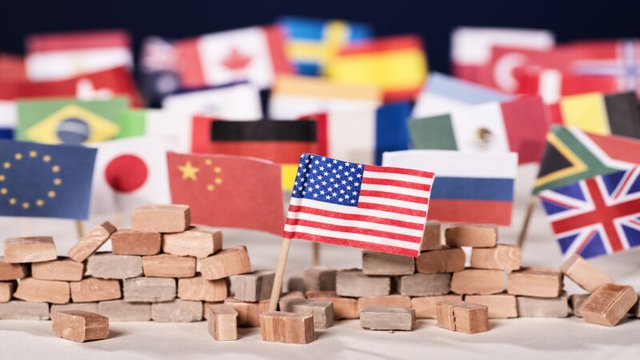
What is foreign policy?
May 13, 2022

In the current context of international uncertainty, foreign policy acquires relevance by becoming an essential tool for fostering good relations between countries and preserving peace. However, the policies adopted by different countries do not depend solely on the Government but also on companies and civil society, actors that play an increasingly leading role in major political decisions, both outside and within national borders.
But what exactly does foreign policy mean and what does it involve? In this post, we’ll look at the issue in more detail. And if you are interested in a career involving foreign policy, you should consider studying a Bachelor’s in International Relations at Universidad Europea de Madrid.
Definition of foreign policy
Foreign policy is the set of decisions and actions that make up the public policy of a government to protect the well-being of its citizens and represent their national interests before other countries and subjects of international law. It implies a series of principles that define the line that a State follows in front of other nations to satisfy their needs.
As a general rule, foreign policy goes through different phases. At first, the international context and the internal conditions of the country are evaluated to then establish the objectives that allow certain needs to be met. Secondly, the policies and the steps that the State must take to implement it and achieve its goals are specified.
What are the main objectives of foreign policy?
Foreign policy depends on multiple factors, from history and geography to the domestic economy and international conditions. In fact, foreign and domestic policy are inextricably linked: each state defends its domestic interests abroad, but the course of domestic policy also determines its foreign policy.
However, foreign policy generally pursues macro-objectives common to most countries:
- Preserve international peace.
- Strengthen the security of the State vis-à-vis other countries.
- Promote cooperation between different nations, economically, commercially, and culturally.
- Protect the culture and values of society.
- Develop and consolidate the rule of law, ensuring the economic and social well-being of citizens.
- Apply justice ensuring compliance with international legal standards.
- Respect human rights and fundamental freedoms of people.
Foreign policy: historical and current examples
Foreign policy defines the course of a State in the international environment, reflecting the importance that the country attaches to its strategic partners and revealing its values. Spain, for example, continues to defend its interests and positions in the Gibraltar dispute with the United Kingdom. Another important axis of Spanish foreign policy is the rapprochement with Latin America, since the deep historical and cultural ties that exist have turned the region into a main destination for the internationalisation of the Spanish economy.
However, foreign policy also changes throughout history. The United States, for example, was characterised during its first century of existence by political isolation and strict neutrality with the rest of the world. That neutrality was broken when it intervened in Cuba's war of independence from Spain and from that moment on, began to deploy a more aggressive foreign policy that would lead it to get directly involved in different armed conflicts in the world.
What to study to work in foreign policy?
Working in the area of foreign policy demands a great knowledge of international law and the ability to understand broad and complex scenarios. It is also necessary to know how to understand the needs of citizens and project them adequately to satisfy the interests of the State. Therefore, if you want to practice foreign policy you must have a solid education.
At Universidad Europea we offer you different programs with which you can develop a comprehensive vision of the world and learn the fundamental aspects of global law and international relations: